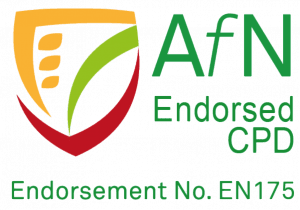It seems that there is a constant debate, even argument about the role of carbohydrate in the diet. This is even more the case when it comes to managing diabetes. Increasingly people living with diabetes are taking to online forums to explore different approaches to managing their conditions and for some finding low carbohydrate diets provide a very tolerable and effective solution. However, this dietary strategy may appear to conflict with the ideas of the EatWell Guide, leading to debate and confusion amongst both the public and health professionals. In this webinar, the history of dietary approaches and recommendations in the management of type 2 diabetes (with a mention or two about its role in supporting the management of type 1 diabetes) will be covered. This will lead to the current recommendations in the UK and how low carbohydrate diets are supported. This will be considered with the research which seems to suggest there may not be one best dietary approach to managing diabetes, and it is about supporting people to find the best way to enjoy eating whilst managing their diabetes. Finally, the challenging consideration of amount of carbohydrate will be considered and whether very low intakes are best, and is it always best to try and achieve nutritional ketosis, and if indeed this a safe strategy. This session aims to cover this challenging area and provide an up to date overview of the science and practical considerations relating to diet and type 2 diabetes; including how diet, including low carbohydrate diets may help people in trying to achieve remission from their type 2 diabetes.
What will I learn?
- Explore different dietary approaches and recommendations in the management of type 2 diabetes
- Look at the current recommendations and how low carbohydrate diets are supported
- Understand the challenges of a very low carbohydrate diets to patients with type 2 diabetes

Curriculum
- 1 Section
- 2 Lessons
- Lifetime
- Low carbohydrate and type 2 diabetes: is lower always better?2